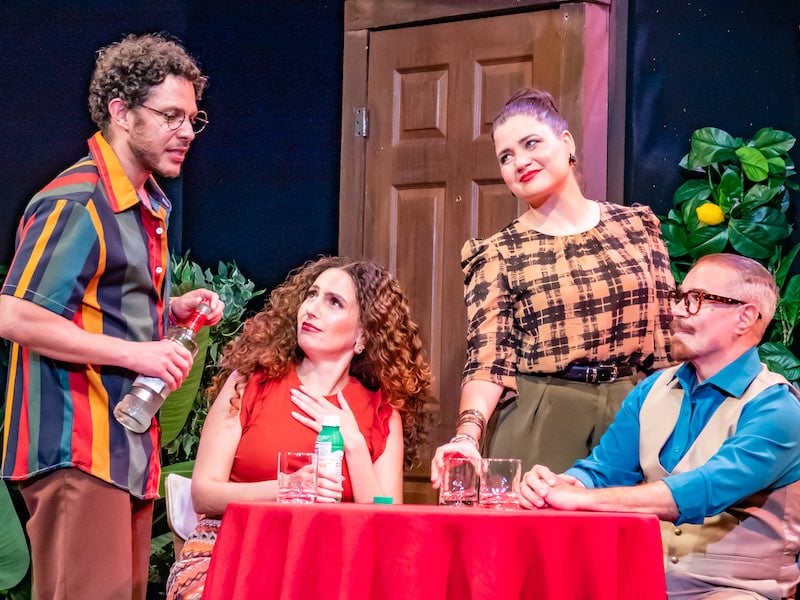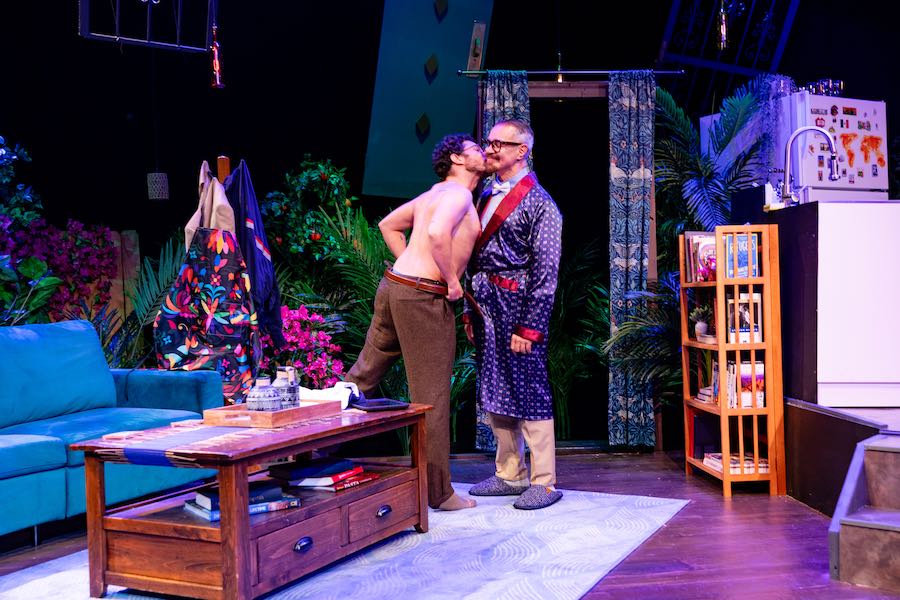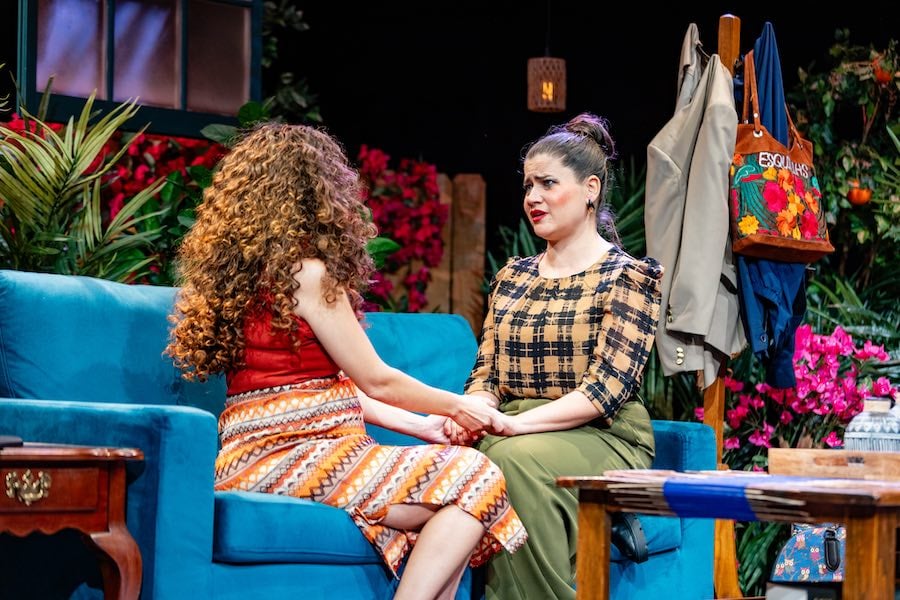Gustavo Ott’s beautiful dream of empathy, kindness, healing, and building an encompassing international community that becomes like family would likely be Stephen Miller’s worst nightmare. Miller, a former Trump Administration policy advisor who now advocates the massive deportation of millions of “illegals” on a scale that would dwarf the Eisenhower era’s “Operation Wetback,” would hate the cleverness of Ott’s protagonist, Hugo (Carlos Castillo), who manipulates the immigration system by serially marrying women and men from all over the world to get them documents allowing them, and their families, and their families’ families, refuge in the United States.
So The 22+ Weddings of Hugo, Ott’s joyous and very funny celebration of the best in human values, now playing at GALA Hispanic Theatre, has an inevitable political subtext as the days count down to the 2024 election. This subtext speaks for itself. Ott and director José Zayas, to their credit, do not dwell on that dimension of the material, rather focusing on the varied characters who join Hugo’s marital parade and the relationships among them.

We first see wife #18, Irene (Yaiza Figueroa), a lively, fast-talking, woman recently arrived from the Dominican Republic, as she and Hugo arrive from their wedding. She describes a long-standing attraction to “bad boy” and criminal lovers (a pizza night with a hit man seems to have been a highlight of her dating life in the DR). As she learns, Hugo never expects money or sex from the people he marries; he wants to hear their stories and give them the security of living in a better place.
The story then flashes back three months to wife #17, Wafa (Giselle González), from Syria, who for her very difficult journey to the U.S. (her last name is easily mistaken for one on a terrorist watch list) has had to leave her children behind in Damascus. González brings touching depth to Wafa, making her the character I found easiest to care about deeply.
Going back another three months, the play introduces us to spouse #16, Elmar (Víctor Salinas), a gay Mexican aspiring novelist, whose wry observations about plays and playwrights are among the most amusing lines in the script. Salinas plays the role with light touch, leavened with a degree of melancholy for those he has left behind in Mexico.

All three scenes in the first act are dialogues between Hugo and one after another of his spouses. But who is Hugo? Structurally, his function in the first act reminds me of characters in other, quite different, shows (think Bobby in Company or even Guido in Nine) who act as a fulcrum for other characters’ stories, rather than as someone who the audience gets to know well. Castillo performs that function well, establishing his ability to be an empathetic listener, turning the audience’s focus to each of his spouses’ individual stories rather than to his own.
The second act becomes more complex. Hugo, a postal worker who has landed in jail for going comically postal, finds that his scheme has been uncovered, leading to years in prison. He urges Irene and Elmar to get out of town before they are caught by ICE. On his release, he reunites and forms a deeper connection with Wafa, who has maintained his house during his absence.
This brings us to the final, and to my mind, most problematic scene of the play. After apparently not having been around during Hugo’s prison term, Irene and Elmar suddenly reappear. Then, in what appears intended as the play’s major reveal, Hugo describes his motive for beginning (though not for continuing) his career of “beautiful crime.” It feels facile. More important, a neat explanation is unnecessary. Like evil, goodness is all the more powerful if its roots are left mysterious.

None of this detracts from the joy Hugo’s goodness creates or the relationships that it fosters. That joyfulness is underlined by Griselle González’s set, whether its homey kitchen or the flowery riot of color surrounding Hugo’s living area.
The theme that wounded people heal themselves through helping and healing others shines through, as does the beauty of welcoming people from everywhere to become part of a vibrant community. One can only wish that policymakers would get the point.
Running Time: Two hours, including one 15-minute intermission.
The 22+ Weddings of Hugo plays through September 29, 2024 (Thursdays through Saturdays at 8 pm and Sundays at 2 pm), at GALA Hispanic Theatre, 3333 14th Street NW, Washington, DC. Purchase tickets online. Regular tickets are $48 Thursdays and Sundays, and $50 Fridays and Saturdays. Senior (65+) and military are $35; and student under 25 are $25. For more information and to purchase tickets, visit galatheatre.org or call (202) 234-7174. Tickets are also available on TodayTix.
In Spanish with English surtitles.
The playbill for The 22+ Weddings of Hugo can be downloaded here (scroll down).
COVID Safety: All performances are mask-optional. See GALA’s complete COVID-19 Safety Policy.



